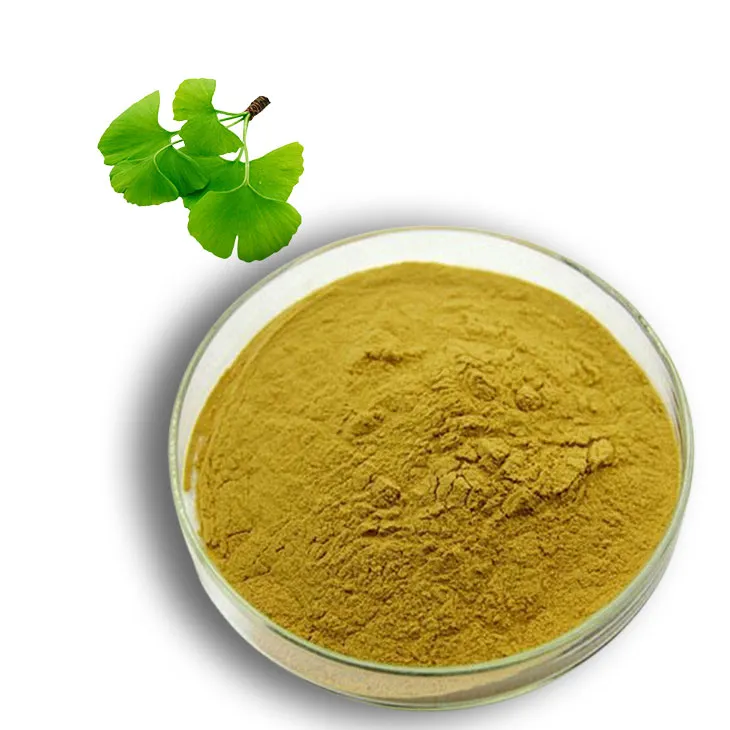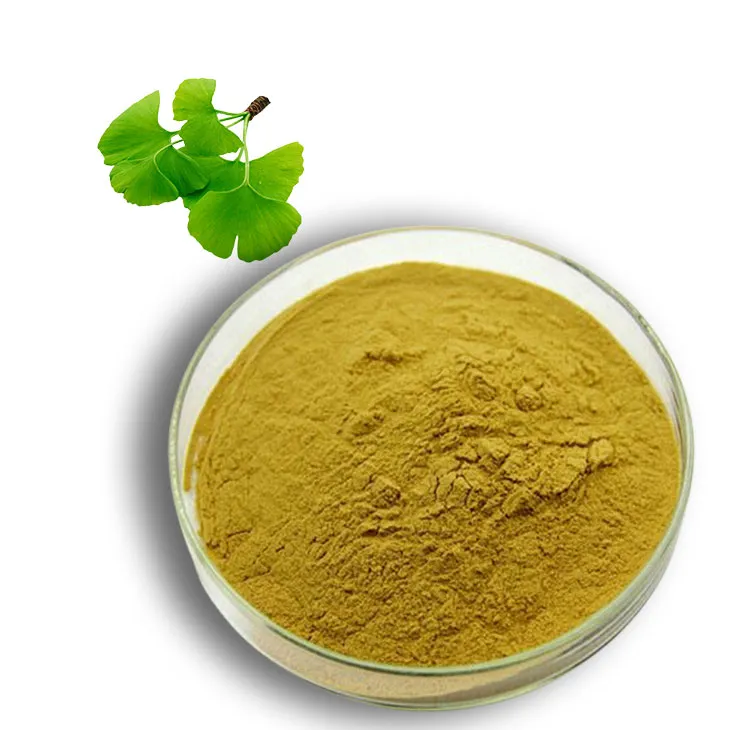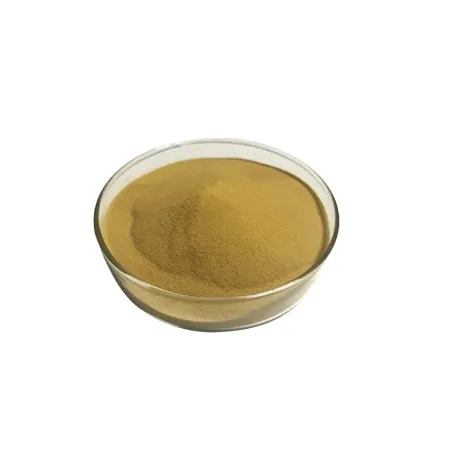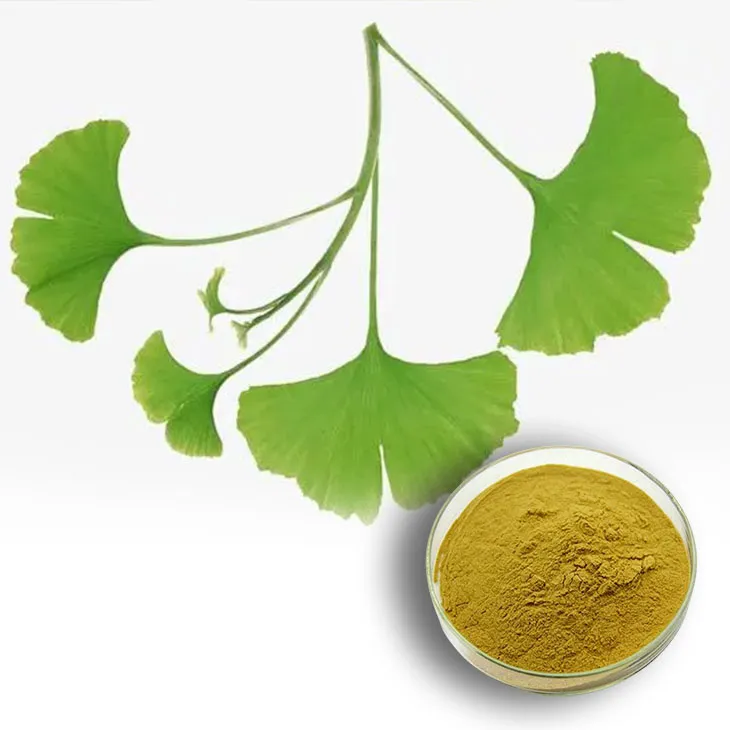- 0086-571-85302990
- sales@greenskybio.com
Emerging Trends and Competitive Strategies in the Ginkgo Biloba Extract Market.
2024-12-21

1. Introduction
The Ginkgo biloba extract market has been witnessing significant changes in recent years. Ginkgo biloba, a unique and ancient plant, has long been recognized for its potential health benefits. The extract of this plant is used in various industries, and as the market grows, new trends are emerging, and competition is intensifying. Understanding these emerging trends and formulating effective competitive strategies are crucial for companies operating in this market.

2. Emerging Trends in the Ginkgo Biloba Extract Market
2.1 Use in Cosmetics
One of the emerging trends in the Ginkgo biloba extract market is its growing use in the cosmetics industry. Ginkgo biloba extract is rich in antioxidants, such as flavonoids and terpenoids. These antioxidants can help protect the skin from damage caused by free radicals. Free radicals are unstable molecules that can cause oxidative stress, which is associated with premature aging, wrinkles, and other skin problems.
Many cosmetic products now include Ginkgo biloba extract as an ingredient. For example, face creams, serums, and masks may contain Ginkgo biloba extract to provide anti - aging benefits. It can also improve skin elasticity and reduce inflammation, making it suitable for products targeted at sensitive skin.
2.2 Expansion in International Markets
The Ginkgo biloba extract market is also expanding in international markets. With increasing awareness of the potential health benefits of Ginkgo biloba, demand for its extract is growing in different parts of the world.
In Asia - Pacific, countries like China and South Korea have a long - standing tradition of using herbal remedies, and Ginkgo biloba is no exception. In Europe, there is a growing interest in natural products for health and wellness, and Ginkgo biloba extract is being incorporated into various dietary supplements and functional foods.
In the Americas, especially in the United States, the market for Ginkgo biloba extract is expanding due to the increasing popularity of alternative medicine. This expansion in international markets presents both opportunities and challenges for companies in the Ginkgo biloba extract market.

3. Competitive Strategies in the Ginkgo Biloba Extract Market
3.1 Cost - Effective Production
Cost - effective production is a key competitive strategy in the Ginkgo biloba extract market. To achieve cost - effective production, companies need to focus on several aspects.
Firstly, optimizing the supply chain is essential. This includes sourcing high - quality Ginkgo biloba leaves at a reasonable cost. Companies can establish long - term relationships with suppliers to ensure a stable supply of raw materials. For example, they can work directly with farmers or plantations to cut out middlemen and reduce costs.
Secondly, improving production processes can also contribute to cost - effectiveness. Investing in modern extraction technologies can increase the efficiency of extracting Ginkgo biloba extract. For instance, using supercritical fluid extraction can result in a higher - quality extract with less waste, which can ultimately lower production costs.
3.2 Strategic Partnerships
Another important competitive strategy is forming strategic partnerships. In the Ginkgo biloba extract market, companies can form partnerships in different areas.
- Research and development partnerships can be beneficial. By collaborating with research institutions or universities, companies can gain access to the latest scientific research on Ginkgo biloba. This can help them develop new products or improve the quality of existing products. For example, a company may partner with a university to study the bioavailability of Ginkgo biloba extract in the human body, which can lead to the development of more effective dosage forms.
- Marketing partnerships can also be effective. Companies can team up with other well - known brands in the health or cosmetics industry to promote their Ginkgo biloba extract products. For instance, a Ginkgo biloba extract manufacturer may partner with a large cosmetic brand to create a co - branded line of anti - aging skin products.
3.3 Quality Control
Quality control is crucial for companies in the Ginkgo biloba extract market to gain a competitive edge.
To ensure quality, companies need to implement strict quality control measures at every stage of production. This starts with raw material inspection. Only high - quality Ginkgo biloba leaves should be used for extraction. During the extraction process, parameters such as temperature, pressure, and solvent purity need to be carefully monitored to ensure the consistency and quality of the extract.
Companies should also conduct regular quality testing of their finished products. This includes testing for the presence of active ingredients, as well as for contaminants. For example, heavy metal testing should be carried out to ensure that the Ginkgo biloba extract is safe for consumption or use in cosmetics.

4. Challenges and Opportunities in Implementing Competitive Strategies
4.1 Regulatory Challenges
One of the main challenges in implementing competitive strategies in the Ginkgo biloba extract market is regulatory compliance. Different countries have different regulations regarding the use, production, and marketing of Ginkgo biloba extract.
For example, in the European Union, dietary supplements containing Ginkgo biloba extract are subject to strict regulations on labeling, dosage, and safety. In the United States, the Food and Drug Administration (FDA) also has certain requirements for herbal products. Companies need to stay updated on these regulations and ensure that their products meet the relevant standards. This can be a complex and time - consuming process, especially for companies operating in multiple international markets.
4.2 Technological Innovation Opportunities
Despite the challenges, there are also opportunities for technological innovation in implementing competitive strategies.
Advances in extraction technologies, such as the development of new solvents or extraction methods, can improve the quality and efficiency of Ginkgo biloba extract production. For example, the use of green solvents can not only reduce environmental impact but also potentially enhance the bioactivity of the extract.
Moreover, emerging technologies in analytics, such as high - performance liquid chromatography (HPLC) and mass spectrometry (MS), can enable more accurate quality control. These technologies can be used to precisely identify and quantify the active ingredients in Ginkgo biloba extract, ensuring product consistency and quality.

5. Conclusion
The Ginkgo biloba extract market is in a state of flux, with emerging trends such as its use in cosmetics and expansion in international markets. To succeed in this competitive market, companies need to adopt effective competitive strategies, including cost - effective production, strategic partnerships, and quality control. While there are challenges, such as regulatory compliance, there are also opportunities for technological innovation. By understanding these trends and strategies, companies can position themselves to take advantage of the growth potential in the Ginkgo biloba extract market.
FAQ:
What are the main emerging trends in the Ginkgo Biloba Extract Market?
The main emerging trends in the Ginkgo Biloba Extract Market include its growing use in cosmetics. Ginkgo Biloba extract has properties such as antioxidant and anti - inflammatory effects, which are highly valued in the cosmetic industry for skin - care products. Another trend is the expansion into international markets. As more countries recognize the potential health benefits of Ginkgo Biloba extract, the market is reaching a broader global customer base.
How can cost - effective production be a competitive strategy in this market?
Cost - effective production can be a competitive strategy in the Ginkgo Biloba Extract Market in several ways. Firstly, by optimizing the supply chain, companies can reduce procurement costs of raw materials. For example, sourcing directly from growers or establishing long - term contracts. Secondly, investing in efficient manufacturing processes can lower production costs. This may involve using advanced extraction technologies that increase yield while reducing waste. Cost - effective production allows companies to offer competitive prices, which can attract more customers and increase market share.
What role do strategic partnerships play in the Ginkgo Biloba Extract Market?
Strategic partnerships play a crucial role in the Ginkgo Biloba Extract Market. They can help companies gain access to new technologies or expertise. For instance, a partnership between a Ginkgo Biloba extract manufacturer and a research institution can lead to the development of more effective extraction methods or new product applications. Strategic partnerships can also enhance distribution channels. A company partnering with an established international distributor can more easily enter new markets, increasing its global reach and competitiveness.
Why is quality control important for competitive advantage in this market?
Quality control is essential for competitive advantage in the Ginkgo Biloba Extract Market. High - quality Ginkgo Biloba extract ensures its efficacy and safety, which are key factors for consumers. Strict quality control measures can prevent contamination and ensure consistent product quality. This builds consumer trust and loyalty. In a competitive market, companies with reliable quality control are more likely to be preferred by customers over those with inconsistent product quality.
What are the challenges faced by companies in implementing these competitive strategies?
Companies face several challenges in implementing these competitive strategies. For cost - effective production, technological upgrades may require significant investment, and there may be resistance to change within the organization. In strategic partnerships, finding the right partners with compatible goals and values can be difficult. There may also be issues related to intellectual property rights and sharing of profits. Regarding quality control, maintaining high standards requires continuous monitoring and investment in quality assurance infrastructure, which can be costly. Additionally, in international markets, companies need to comply with different regulatory requirements, which can be complex and time - consuming.
Related literature
- Trends in Ginkgo Biloba Extract Utilization in the Cosmetic Industry"
- "International Market Expansion of Ginkgo Biloba Extract: Opportunities and Challenges"
- "Cost - effective Production of Ginkgo Biloba Extract: Best Practices"
- "Strategic Partnerships in the Ginkgo Biloba Extract Market: A Case Study"
- "Quality Control in Ginkgo Biloba Extract Production for Competitive Advantage"
- ▶ Hesperidin
- ▶ citrus bioflavonoids
- ▶ plant extract
- ▶ lycopene
- ▶ Diosmin
- ▶ Grape seed extract
- ▶ Sea buckthorn Juice Powder
- ▶ Beetroot powder
- ▶ Hops Extract
- ▶ Artichoke Extract
- ▶ Reishi mushroom extract
- ▶ Astaxanthin
- ▶ Green Tea Extract
- ▶ Curcumin Extract
- ▶ Horse Chestnut Extract
- ▶ Other Problems
- ▶ Boswellia Serrata Extract
- ▶ Resveratrol Extract
- ▶ Marigold Extract
- ▶ Grape Leaf Extract
- ▶ blog3
- ▶ blog4
- ▶ blog5
-
Pure 85% Tomentil Extract.
2024-12-21
-
Clove Powder
2024-12-21
-
Centella Asiatica Extract
2024-12-21
-
Curcuma Longa Extract/Turmeric extract
2024-12-21
-
Alfalfa Meal
2024-12-21
-
Feverfew Extract
2024-12-21
-
Angelica sinensis extract
2024-12-21
-
Nettle Root Extract
2024-12-21
-
Pomegranate Extract
2024-12-21
-
Black Rice Extract
2024-12-21
-
Bamboo Leaf extract
2024-12-21





















